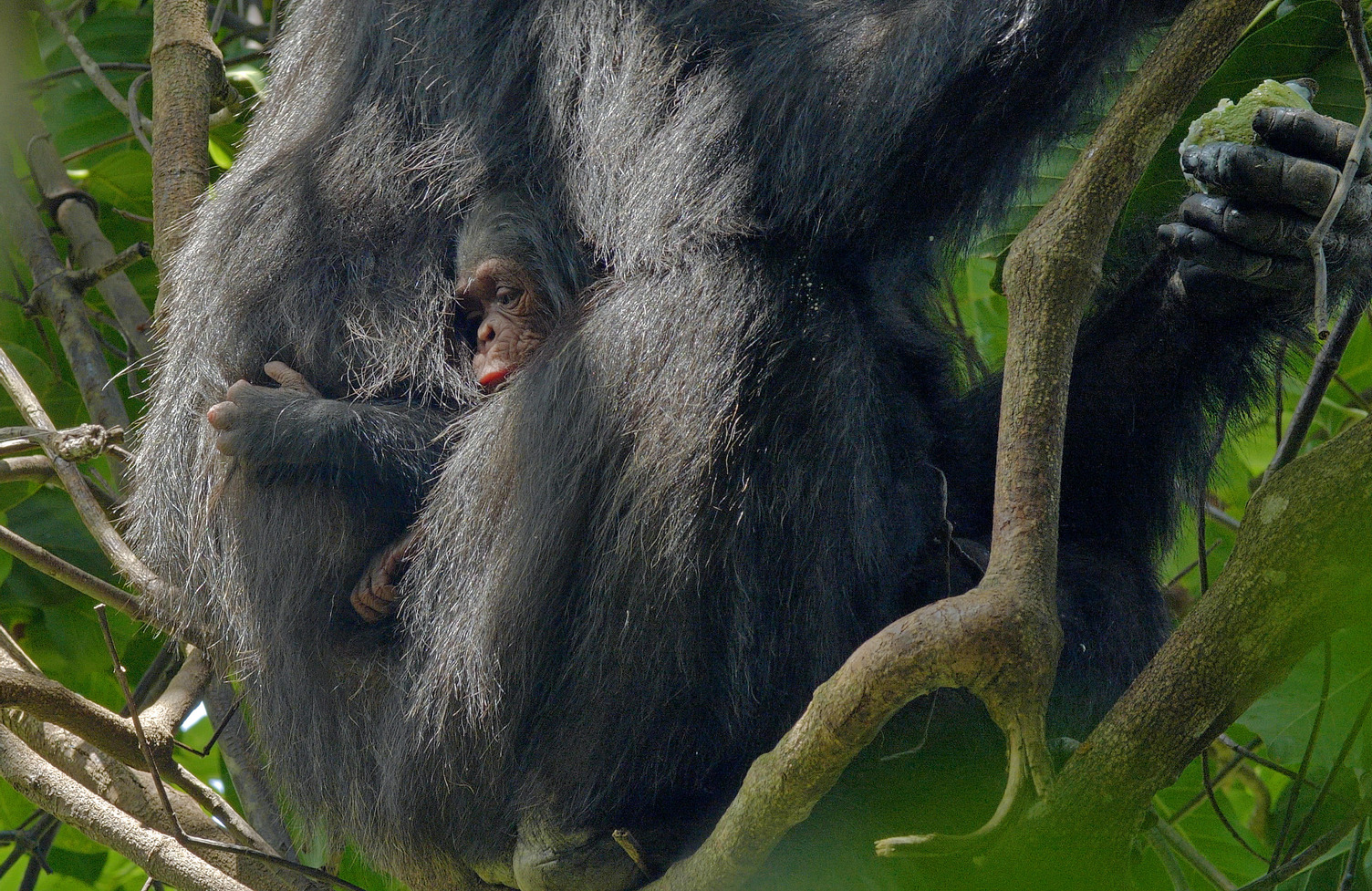On July 14, 1960, Dr. Jane Goodall—at the time, just Jane Goodall—stepped foot in what is now Gombe, Tanzania to begin her groundbreaking research into wild chimpanzee behavior. Today, research continues as part of the longest-running wild chimpanzee study in the world. Individual and group behavior at Gombe are closely tracked among two chimpanzee communities: Mitumba and Kasekela. Monthly focal follows occur on an uninterrupted basis according to the model Dr. Goodall began over 60 years ago, in which staff typically spend eight or more hours tracking individual chimpanzees within two separate communities until the animals nest at night.
While the chimpanzees are typically all accounted for, it is also not uncommon for some individuals to leave their groups. Mitumba chimpanzees Edgar and Keaton were not observed in January—turned out it was not the first time Edgar had taken a female on an extended honeymoon! Two Kasekela newborns were observed with new mothers Golden and Eden over the summer. And in February of 2022, Dr. Goodall visited Gombe to spend time in the forest with researchers, creating full circle moments with the past and present of this essential place of curiosity and connection.
In addition, several exciting research papers came out of Gombe studies and were published in 2022, including:
- 🔗 “Chimpanzee pant-hoots encode individual information more reliably than group differences,” by Nisarg Desai, Pawel Fedurek, Katie Slocombe, and Michael L. Wilson.
- 🔗 “Drinking frequency in wild lactating chimpanzees (Pan troglodytes schweinfurthii) and their offspring,” by Rachel S. Nelson, Elizabeth V. Lonsdorf, Karen A. Terio, Kaitlin R. Wellens, Sean M. Lee, and Carson M. Murray.
- 🔗 “Correlates of individual participation in boundary patrols by male chimpanzees,” by Anthony Massaro, Ian Gilby, Nisarg Desai, Alexander Weiss, Joseph Feldblum, Anne Pusey, and Michael Wilson.
Continued research into the lives of our closest living relatives in the animal kingdom is essential for their protection. You can support researchers in the field by becoming (or gifting) a Gombe Science Hero today!

